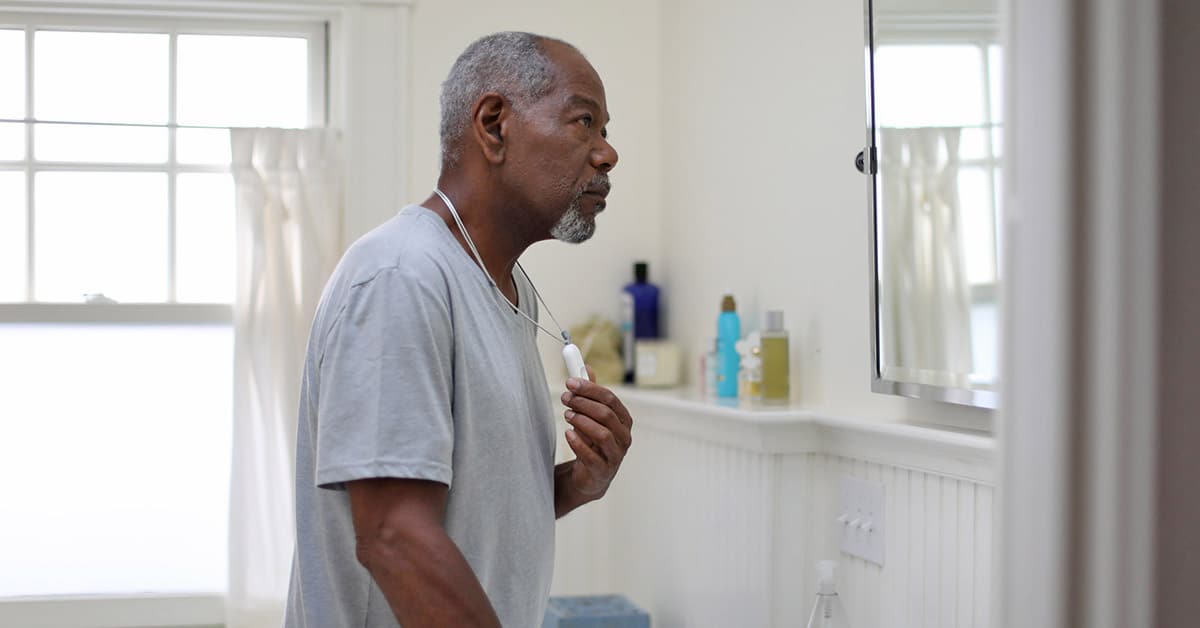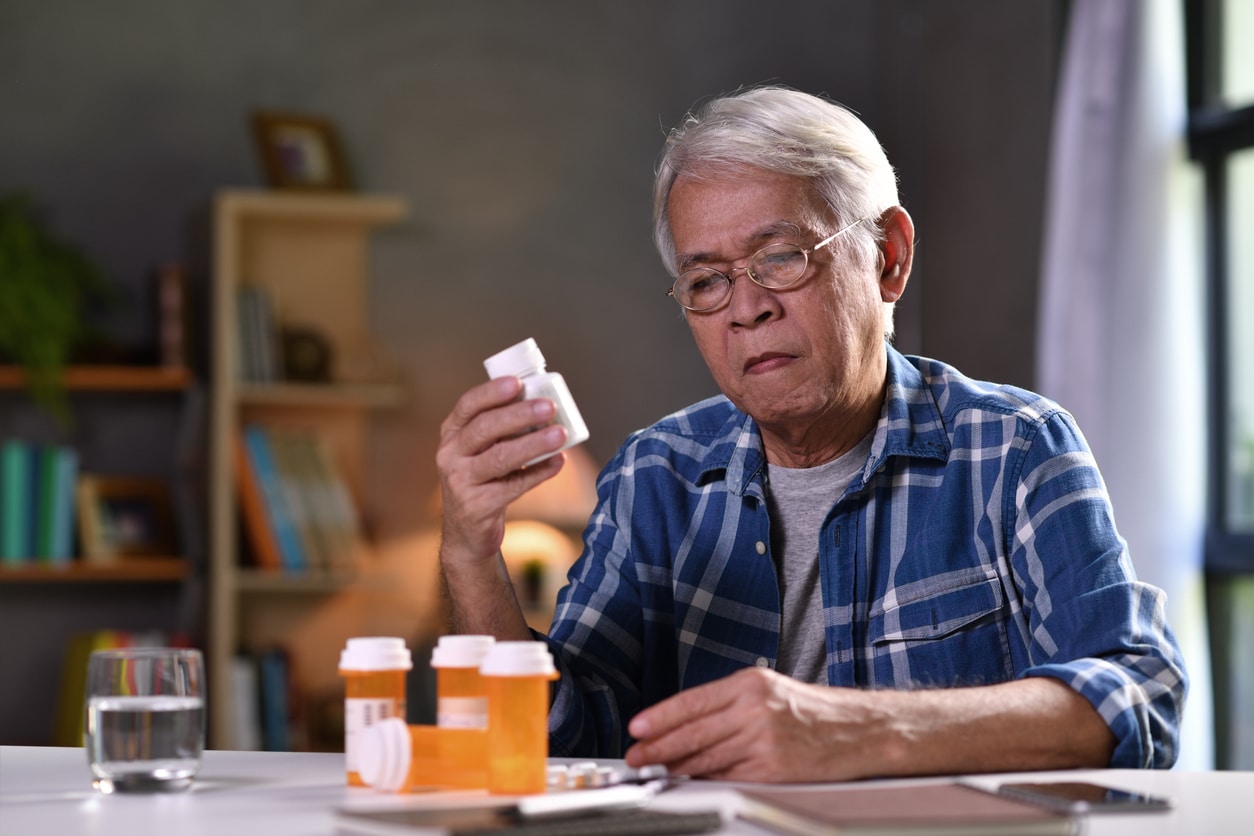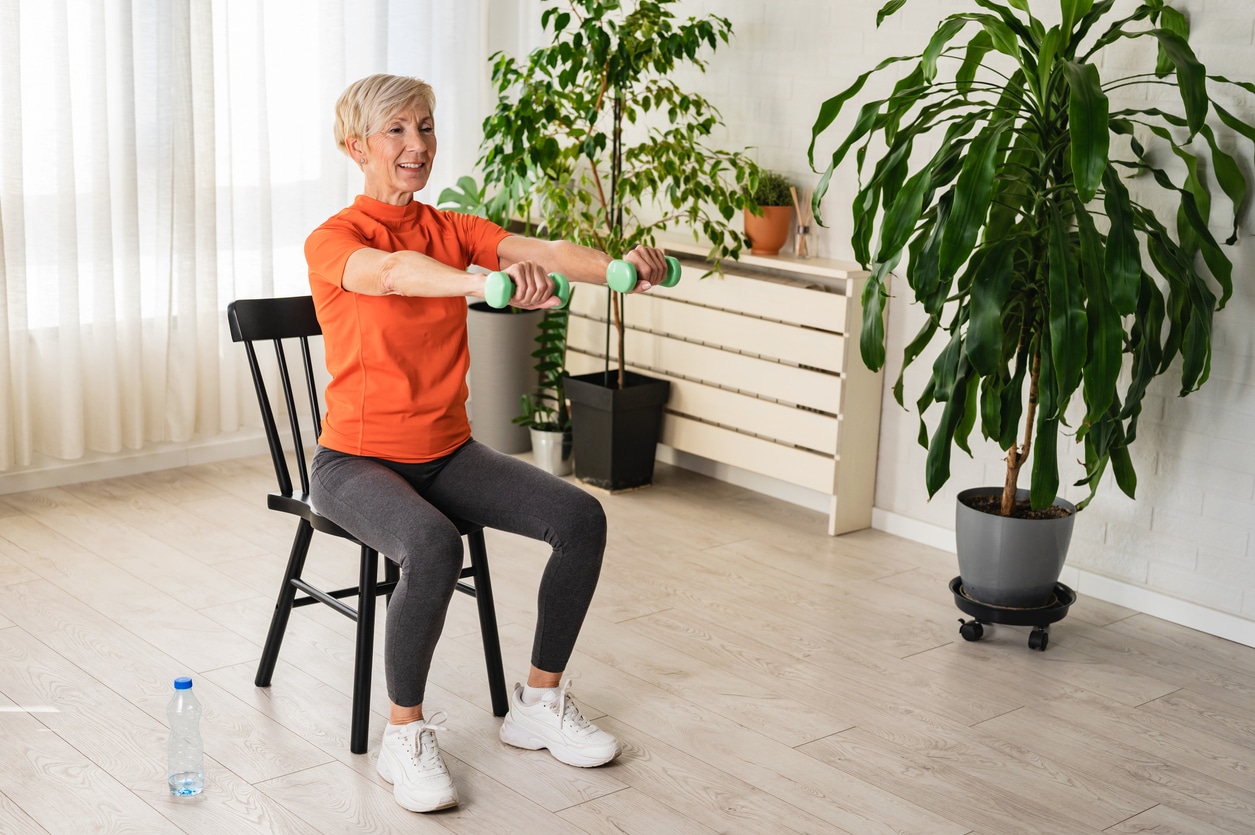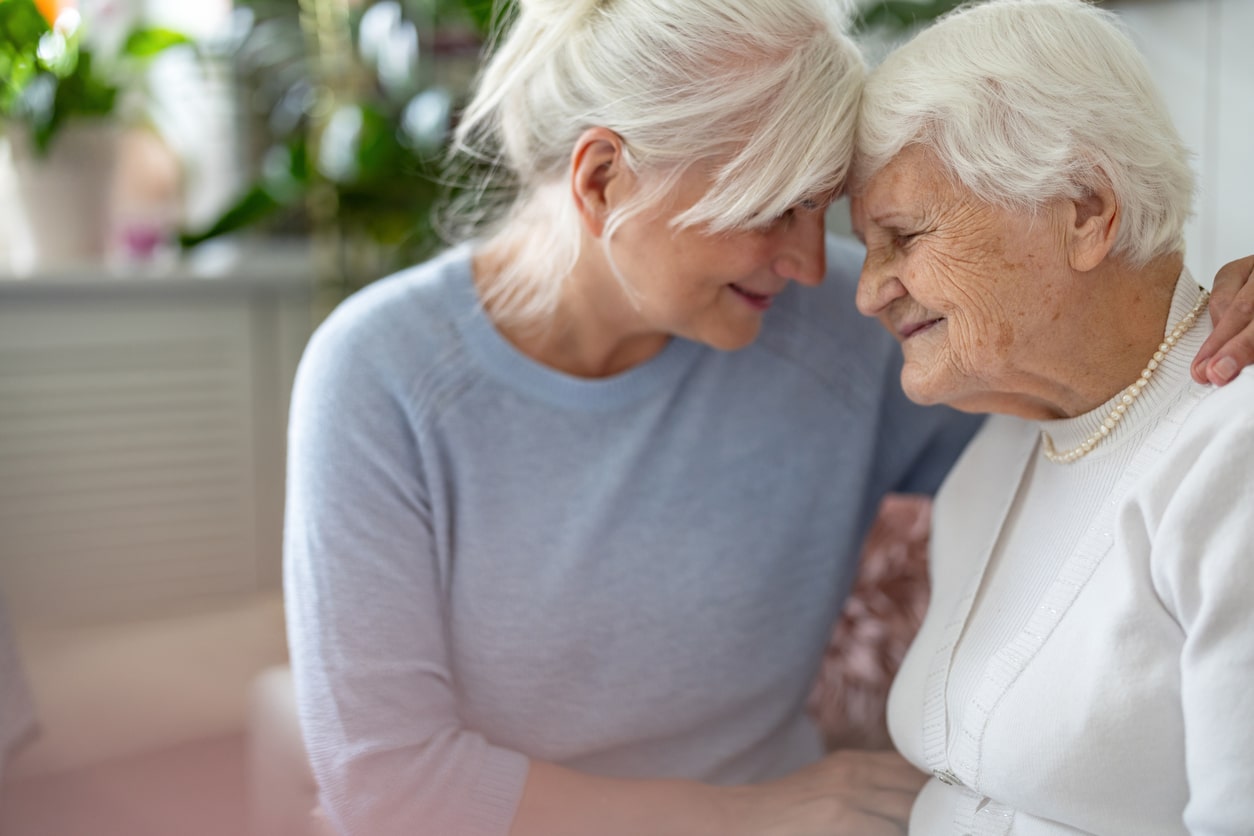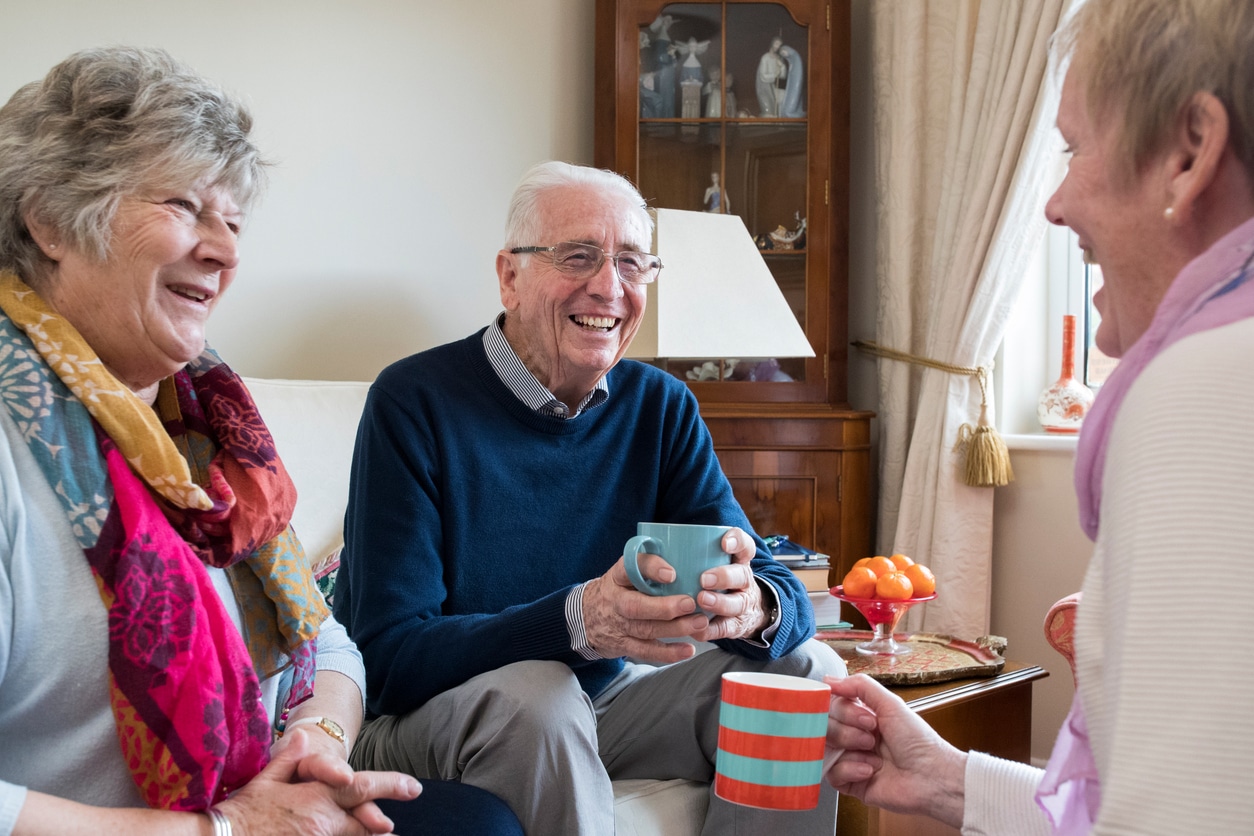With all we have going on in our lives, it can be easy to overlook the important connection between wellness and hygiene. But routine personal maintenance can help us keep ourselves and our loved ones healthier and safer.
Personal Hygiene Checklists for Seniors
Hands
According to the Centers for Disease Control and Prevention, washing hands with soap and clean, running water is one of the most important ways to avoid getting sick and spreading germs to others. Always follow the CDC’s guidelines for hand-washing.1
- Wash and thoroughly dry hands frequently
- Check for cracks and cuts
- Trim ragged and in-grown nails carefully
- Use lotion to keep skin supple
- Apply sunscreen to any areas exposed to the sun
- See a healthcare professional or home care aid for proper treatment of thick or discolored nails, calluses and blisters
Feet
Healthy feet contribute to safe mobility and are especially important for people living with diabetes.2
- Wash and thoroughly dry feet often (even between the toes)
- Treat cracking or peeling skin
- Notice color and temperature anomalies
- Address jagged and in-grown toenails carefully
- Use lotion on tops and bottoms of feet, not between toes
- Apply sunscreen to any areas exposed to the sun
- See a healthcare professional or home care aid for proper treatment of thick or discolored nails, corns, calluses and blisters
Eyes
Our ability to see clearly is crucial to lowering the likelihood of falling and is particularly vital for people living with vision impairments and diabetes.
- Gently wipe any eye discharge with a soft, damp cloth
- Look for irritation of the eye and eyelid
- Follow directions for wearing and cleaning contact lenses
- Keep corrective lenses and sunglasses clean
- See a healthcare professional for proper treatment of styes and if discharges, including tears, persist
Teeth and Mouth
Oral care influences proper nutrition and effective nutrition and can provide early diagnosis of serious conditions such as mouth cancer and bone loss. The National Institute on Aging suggests3:
- Brush teeth and tongue thoroughly twice a day with fluoride toothpaste
- Take note of dry mouth or excessive salivation
- Floss daily between the teeth to remove dental plaque
- Treat dry or cracked lips with lip balm
- Rinse with mouthwash after eating to ease halitosis
- Use lipstick and lip balms that contain sunscreen
- Clean dentures and other dental devices according to manufacturer’s instructions
- See a healthcare professional for proper treatment of cracked or loose teeth, growths, ill-fitting dentures and pain, pressure or sensitivity Skin
Skin
As our largest organ, skin deserves good hygiene. If you’re a caregiver of an opposite-sex loved one, consider having them wear a bathing suit or other covering to preserve dignity while you assist. Tips from the NIH News in Health include4:
- Bathe in warm—not hot—water
- Use mild cleansers
- Wash gently and pat dry to avoid irritation and abrasion
- Use lotion to keep skin supple
- Wear sunscreen
- Treat cuts and scratches
- See a healthcare professional for proper treatment of burns, bruises, discoloration, swelling or sensitivity
How to Talk with Older Loved Ones about Personal Hygiene
Discussing issues of hygiene is uncomfortable for everyone. It’s uncomfortable and awkward to tell someone they aren’t staying clean and healthy, and it feels even worse to hear it. The best tactics are addressing the issue in a way you’d like someone to bring it to you, and to change the way you feel about difficult conversations. “It’s an invitation to communicate and to get closer to each other,” says Friedemann Schaub, author of The Fear + Anxiety Solution. “When you resolve it, you understand them better. Avoidance creates the opposite effect.”
- Think about what you’d want someone to say if you had spinach in your teeth, a big stain on your shirt or bad breath
- Consider how it feels to hear get this kind of feedback to help you approach with dignity and empathy
- Avoid scolding or shaming
- Make your observations as privately and helpfully as possible
- Find out if certain hygiene tasks are difficult or painful and ask if they’d like help addressing those obstacles
- Remind them that your comments come from a place of love and concern for their health, comfort and wellbeing
Don’t disregard professional medical advice, or delay seeking it, because of what you read here. This information is not intended as a substitute for professional consultation, diagnosis or treatment; it is provided “as is” without any representations or warranties, express or implied. Always consult a healthcare provider if you have specific questions about any medical matter, and seek professional attention immediately if you think you or someone in your care may be experiencing a healthcare condition or medical emergency.
1CDC – Show Me the Science – How to Wash Your Hands. https://www.cdc.gov/handwashing/show-me-the-science-handwashing.html. July 26, 2021.
2CDC – Diabetes and You: Healthy Feet Matter! https://www.cdc.gov/diabetes/ndep/pdfs/151-health-feet-matter.pdf. July 26, 2021.
3https://www.nia.nih.gov/health/taking-care-your-teeth-and-mouth
4The NIH – News in Health. Keep Your Skin Healthy. https://newsinhealth.nih.gov/2015/11/keep-your-skin-healthy
